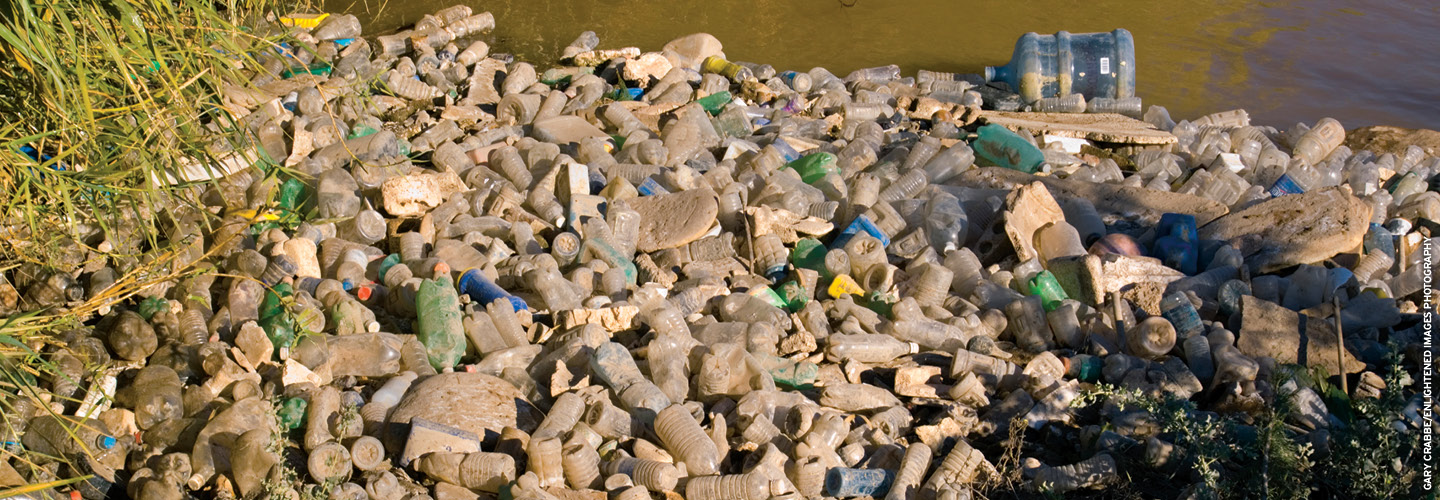Imagine this scene: You finish a bottle of water and make sure to toss it into the recycling bin, because you know how harmful plastic can be to the environment. By keeping the bottle out of the garbage, you feel confident that you’ve helped protect the planet. You give yourself a mental pat on the back for taking this small but necessary step.
There’s just one problem: A huge portion of the stuff that Americans think is getting recycled is actually going to landfills with the rest of the trash. In other words, the vast majority of supermarket containers, takeout boxes, and plastic silverware that you and your family diligently sort to get reused in some fashion likely ends up buried in mountains of garbage.
“Recyclable is possibly the most meaningless word,” says Roland Geyer, a professor of environmental science at the University of California at Santa Barbara. “Much of the activities surrounding plastic recycling . . . generate little to no environmental benefit.”
Imagine this scene: You finish a bottle of water and make sure to toss it into the recycling bin. Your motivation is simple: You know how harmful plastic can be to the environment. By keeping the bottle out of the garbage, you feel confident that you’ve helped protect the planet. You give yourself a mental pat on the back for taking this small but necessary step.
There’s just one problem: That bottle might actually not get recycled. Instead, it’ll most likely end up in a landfill with the rest of the trash. In fact, a huge chunk of the stuff that Americans think is getting recycled just goes to landfills. That includes the supermarket containers, takeout boxes, and plastic utensils that you and your family do your best to sort for reuse.
“Recyclable is possibly the most meaningless word,” says Roland Geyer, a professor of environmental science at the University of California at Santa Barbara. “Much of the activities surrounding plastic recycling . . . generate little to no environmental benefit.”

